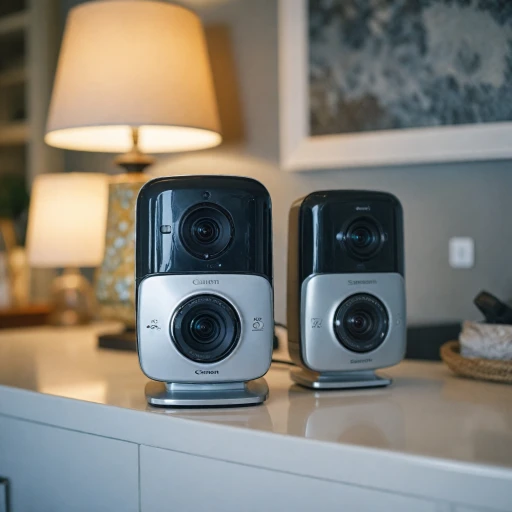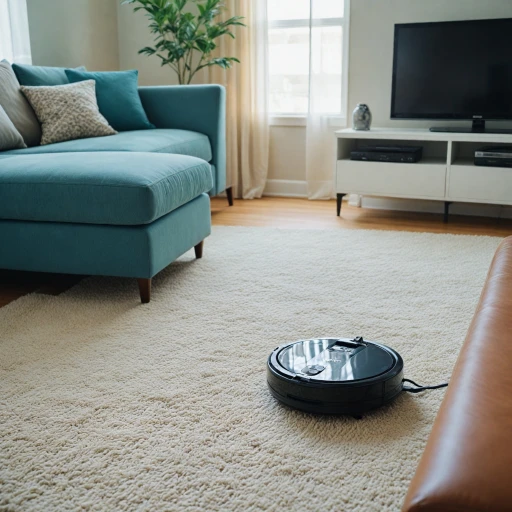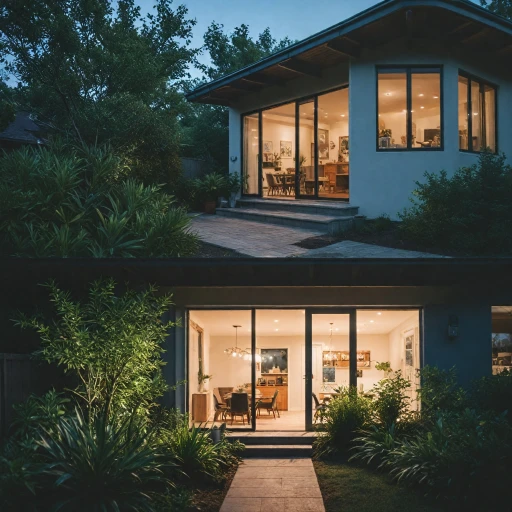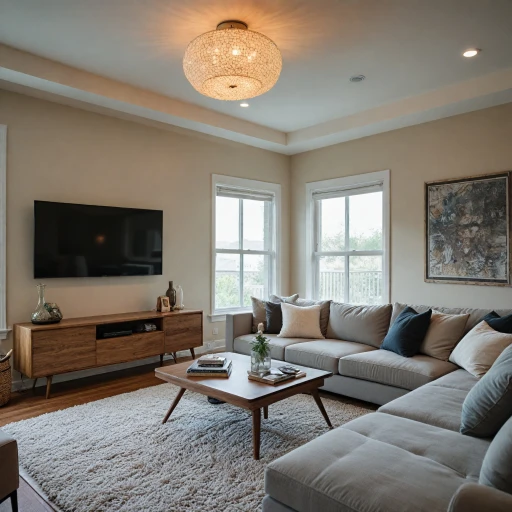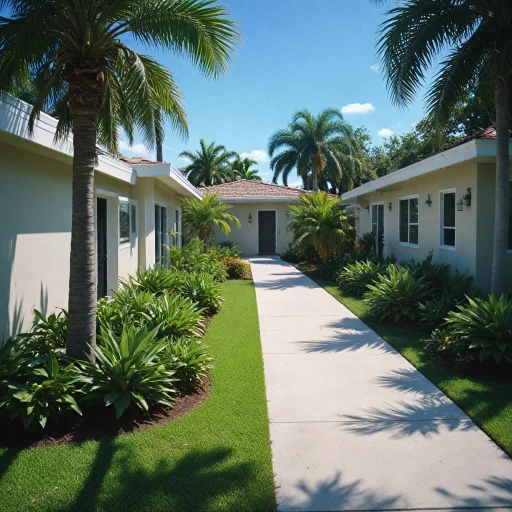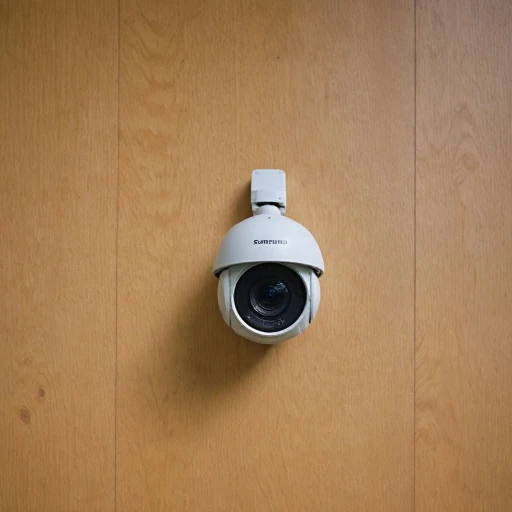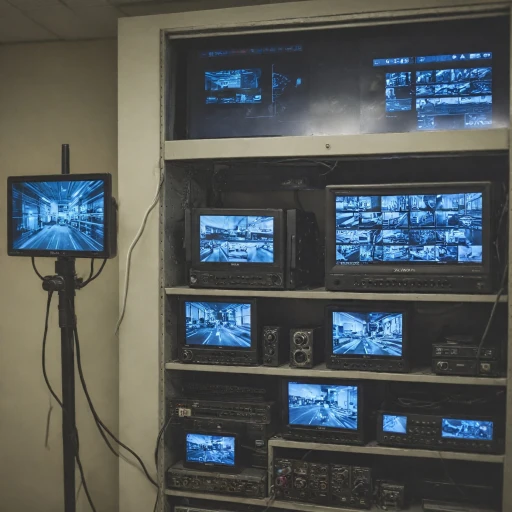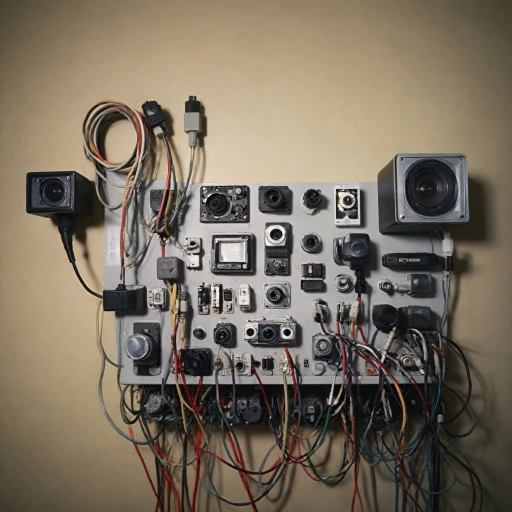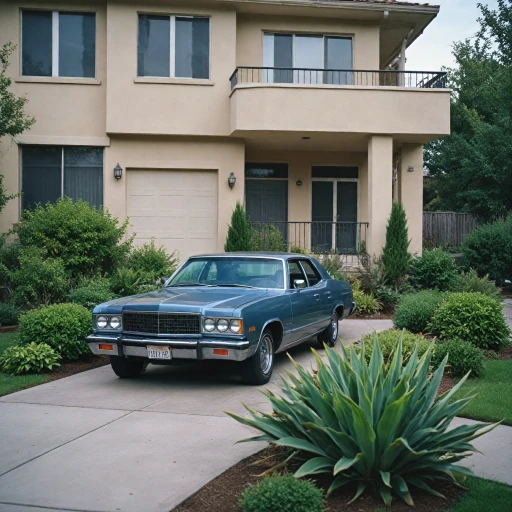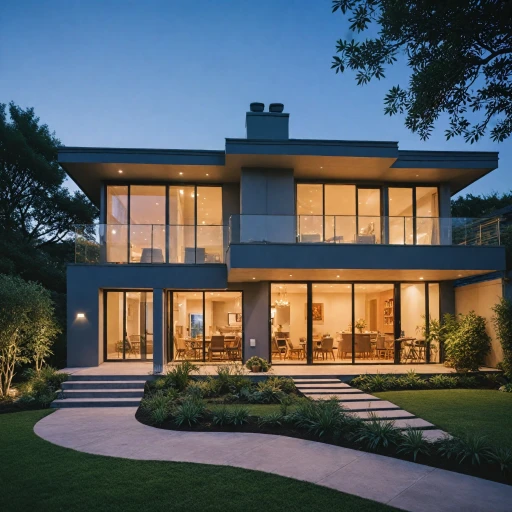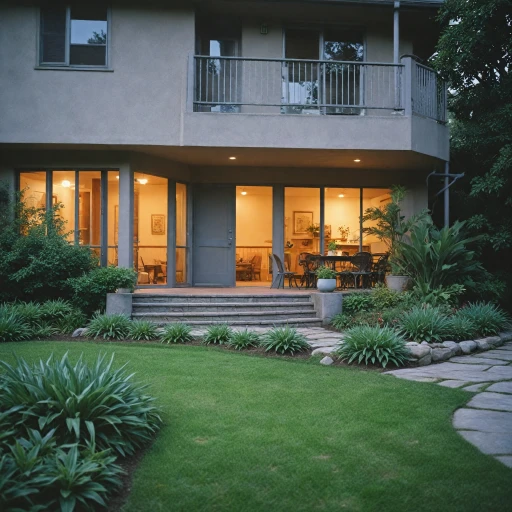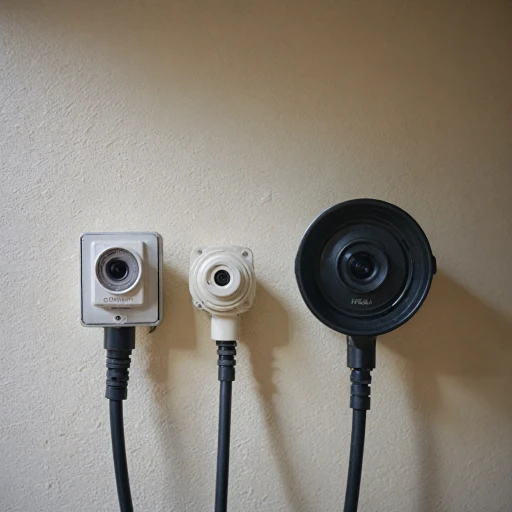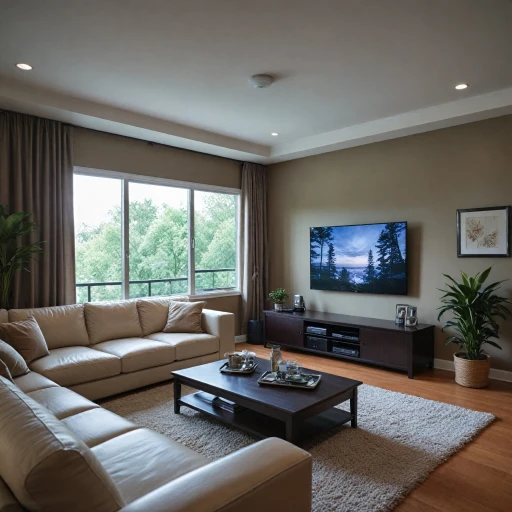Factors Influencing CCTV Installation Costs
Key Elements That Impact the Cost of CCTV Installation
Understanding what influences the cost of installing CCTV systems in your home is crucial for setting a realistic budget. As many factors come into play, let's explore the components that determine the overall expenditure of your security endeavor.
- Type of CCTV Cameras: The choice between various types of cameras such as wireless, night vision, or motion detection cameras can significantly affect the cost. Each comes with its price range and capabilities.
- Installation Type: Deciding between DIY and professional installation will also impact the cost. DIY may save upfront costs but can be less reliable, while professional installation ensures optimal setup.
- Power and Connectivity: Wired systems often require more labor to install but offer stable connectivity. Wireless cameras may be simpler to set up but depend on your Wi-Fi strength and coverage.
- Coverage and Quantity: The number of cameras needed and the system's coverage area can drive up expenses. A larger home with multiple entry points typically requires more extensive setups.
- Video Storage Solutions: The choice between cloud-based storage and local storage devices also influences cost. Each has its benefits and limitations, which should be weighed against their costs.
To dive deeper into how different camera types influence expenses, consider reading about enhancing home security with Wi-Fi cameras
here.
Types of CCTV Cameras and Their Price Ranges
Exploring Various Camera Types and Pricing
When it comes to selecting the right CCTV camera for your home, understanding the array of available options can be quite daunting. Each type of camera has its distinct features, affecting the overall security system cost and the effectiveness of your surveillance efforts.
Let's delve into the diverse categories of CCTV cameras and their respective price ranges.
- Dome Cameras: Known for their discreet design, dome cameras are a popular choice for both indoor and outdoor installations. They typically offer features like night vision and motion detection, which are valuable for maintaining security 24/7. The cost can vary based on additional features, averaging from a modest $70 to well over $150 per unit.
- Bullet Cameras: Characterized by their long and cylindrical shape, bullet cameras are excellent for long-distance viewing. These cameras often come equipped with high-resolution video, which enhances image clarity. An average price for bullet cameras ranges between $100 and $200.
- PTZ Cameras: PTZ stands for pan-tilt-zoom, a feature that grants control over the camera's field of view. This flexibility makes PTZ cameras suitable for monitoring expansive areas. However, this functionality comes at a higher cost, often exceeding $300 per camera.
- Wireless Cameras: Leveraging Wi-Fi networks, these cameras eliminate the need for extensive wiring during installation, thus reducing installation costs. The price can range from $100 to $250, with variations depending on the camera's resolution and additional security features.
A detailed understanding of each camera type will help in assessing what best fits your specific security needs and budget. For those seeking advanced options, a
4K security camera system may offer superior video quality.
When selecting a CCTV system, it's pivotal to weigh each type's capabilities and how they align with your security goals. By doing so, you can achieve an optimal balance between functionality and cost, ensuring the long-term value of your security investment.
DIY vs. Professional Installation: Cost Comparison
DIY Installation: A Cost-Effective Solution
Installing CCTV systems on your own can be a great way to save on the overall cost. DIY kits are readily available and are usually more affordable compared to their professionally installed counterparts. They include everything you need to install, such as cameras, security system mounts, and cables. However, these setups might require some technical knowledge, especially when configuring features like night vision or motion detection. Additionally, installing wireless cameras might need an understanding of your network to ensure uninterrupted video surveillance.
Professional Installation: Ensuring Seamless Operation
Opting for professional installation ensures that your CCTV system is set up correctly and all components function optimally. Professionals have the expertise to strategically place cameras ensuring maximum coverage and handle any technical issues that may arise during the installation process, such as connecting the security system to your existing power source. However, this convenience comes at a cost. Professional installers typically charge based on the complexity and size of the installation project. While professional services can increase the average cost, they often provide a sense of reassurance.
Weighing the Pros and Cons
When deciding between DIY and professional camera installation, it’s important to consider factors such as your budget, technical skills, and desired features. DIY installations are generally more budget-friendly but come with the risk of improper setup, potentially affecting surveillance efficiency. On the other hand, professional installation ensures the system will work as intended, though it increases the installation costs.
Before deciding, it's vital to evaluate the
essentials of powering your home security camera, as this could influence your choice between DIY or professional services.
Additional Costs to Consider
Considering Hidden Expenditures in Security Camera Installation
When planning to install a security camera system, there are several extra costs to take into account. These potential expenses can sometimes be overlooked in the initial evaluation but can influence the overall budget significantly.
Firstly, the power supply for wired systems or batteries for wireless cameras is necessary. While wired systems require appropriate cabling and conduits, wireless options might incur higher expenses for quality batteries and ensuring they are periodically replaced or recharged.
Storage expenses are another factor. Depending on whether your system requires a Network Video Recorder (NVR) or a Digital Video Recorder (DVR), costs may vary. Each option comes with its own price range, impacting the installation costs. Securing ample storage, particularly for high-resolution footage or night vision capabilities, ensures comprehensive surveillance.
Motion detection technology, while optimizing the efficiency of recording, might require additional investments in terms of both hardware and software. This feature doesn't only improve security but also helps in minimizing storage needs by triggering recordings only when motion is detected.
Another aspect to consider are the costs associated with permits or adherence to local regulations. Certain regions demand permits for operating surveillance systems, which adds to the overall installation costs. It's crucial to verify these requirements to avoid fines or having to uninstall your systems.
Lastly, there are potential expenses related to insurance premiums. While some providers might offer discounts for homes with active surveillance systems, others might not, affecting your ongoing costs. Additionally, maintaining the system, which includes routine checks and updates, should be planned into your budget to ensure functionality.
Identifying these hidden expenditures early can help avoid unpleasant surprises and facilitate a more accurate assessment of the financial commitment involved in installing a CCTV security system.
Budget-Friendly Tips for CCTV Installation
Effective Strategies to Keep CCTV Costs Manageable
When it comes to installing a CCTV system at home, saving money without sacrificing quality is definitely possible. Here are some practical tips to consider:
- Prioritize your needs: Start by assessing your specific home security requirements. Knowing the number of security cameras you really need, as well as the features that are essential like night vision or motion detection, will help avoid overspending on unnecessary bells and whistles.
- Opt for wired over wireless in some cases: While wireless security cameras might seem cost-effective initially, the ongoing need for battery replacements and potential connectivity issues can add up. Consider a wired system if your environment allows for easier installations, reducing the potential for these additional costs.
- Bundle purchases: Retailers often provide discounts for buying multiple cameras or an entire security system bundle. Bundling can sometimes reduce the installation costs compared to piecing together individual components.
- DIY installation: Consider installing your CCTV cameras yourself if you feel confident in your technical abilities. This can significantly reduce professional installation fees. However, weighing the need for professional guidance, especially for complex setups, is also important.
- Use versatile cameras: Selecting cameras with adjustable lenses or various mounting options can allow you to cover more areas with fewer units, thus reducing overall costs.
- Select the right storage solution: Choosing the most cost-effective storage method for your surveillance footage is crucial. While cloud storage might offer convenience, local storage options, such as an external hard drive or a DVR, can often be more budget-friendly over time.
- Regular maintenance: Regularly maintaining your cameras and systems can prevent costly repairs or replacement down the line. Simple actions, like cleaning the camera lenses, ensuring weatherproofing remains intact, and updating firmware, can maintain the lifespan and functionality of your system.
By following these suggestions, you can manage your CCTV installation costs effectively while still maintaining a robust security presence in your home.
Evaluating the Long-Term Value of CCTV Systems
Assessing the Longevity and Benefits of Home Surveillance Systems
Investing in a CCTV system for home security is not just about the initial installation cost but also about evaluating the long-term value it brings. When considering various factors such as the type of cameras and installation costs, the potential benefits of installing CCTV can offer significant peace of mind and property protection over the years.
Firstly, the durability and reliability of cameras, particularly those with night vision and motion detection features, ensure that your home remains secure round-the-clock, irrespective of lighting conditions. A well-chosen camera system with these features reduces the likelihood of unwanted intrusions and can even deter potential burglars. Moreover, many security cameras now come with wireless capabilities, cutting down on power and wiring-related maintenance costs.
Furthermore, for homeowners who choose professional installation, the added expertise ensures optimal camera placement and effective system functioning. This initial expense can result in fewer issues and decrease the cost install over time due to the high-quality setup
When evaluating long-term advantages, consider the potential impact on home insurance premiums. Many insurance providers offer discounts on homes equipped with a security system as these homes pose a lower risk of theft or damage. Thus, the installation costs may be partly offset through these savings.
Lastly, the availability of video storage solutions for CCTV systems plays a critical role in their ongoing value. While there is an average cost associated with data storage services, such setups allow for detailed and archived surveillance footage which can be crucial in incident investigations.
A well-integrated CCTV system enhances overall home security and offers substantial long-term benefits, balancing the initial investment with the peace of mind and protective measures it provides.
